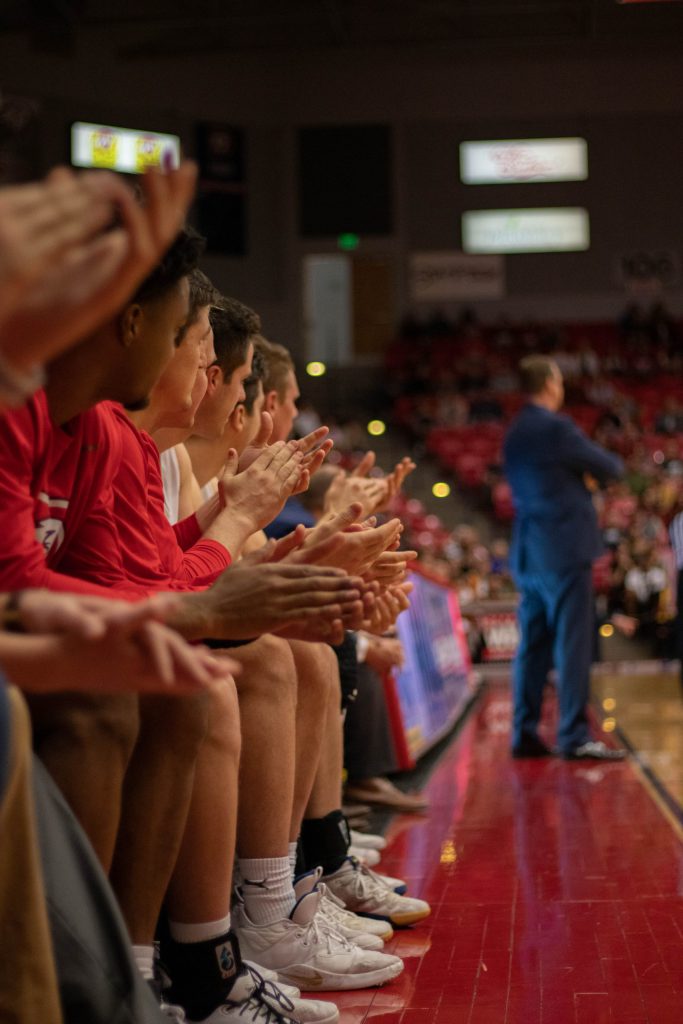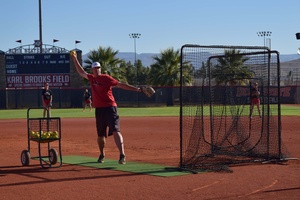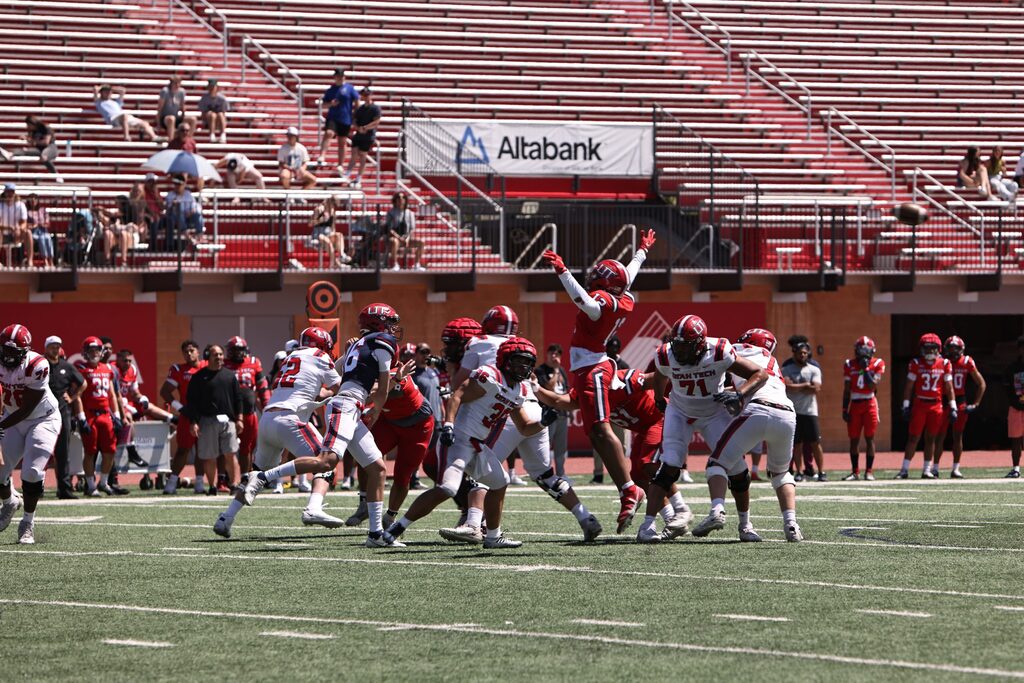When Bruno Bernacchi received surgery at a young age, he was in awe of the nurses who tended to his care.
After freaking out about an “embarrassing” injury, Bernacchi, a junior nursing major from Maui, Hawaii, said it was the nurses who calmed him down and distracted him with jokes.
“I moved around a lot as a kid and had a lot of different doctors, and I knew the ones who were good doctors were surrounded by good nurses,” Bernacchi said. “The [hospitals] that I had a good experience at were largely because I had good nurses.”
When he was younger, Bernacchi thought about studying medicine, but he said it was just “too cold and cut.”
“Doctors treat an organ; nurses treat the person,” he said.
After completing a CNA program and starting his first semester in the nursing program at Dixie State University this month, Bernacchi said he’s looking forward to becoming a nurse and being there for patients like nurses were for him growing up.
For Bernacchi, a typical week as a nursing student includes a 9 a.m. class on Tuesdays and Fridays that ends around 2 p.m., going to labs, and practicing and reviewing skills frequently. Bernacchi and the other prospective nurses also learn through various hands-on experience like attending labs and getting to work with actual patients at care facilities.
“You’re not leaving here with only theoretical knowledge; you leave here with the abilities to do what you’ve been taught,” Bernacchi said. “You practice what you’ve been taught and use it in the field.”
Nursing allows you to connect more with patients, he said.
“My father is an engineer and for him, sometimes there’s a disconnect between a problem somebody has and what the solution is going to be because it’s not the same language (and) not the same experience between the two people working on it,” Bernacchi said. “And it’s the same thing for medicine. Sometimes you have patients that have a problem, and the doctors tell [patients] doctor language and they don’t understand it; they get frustrated.”
He’s working toward his associate of applied science in nursing, which is completed in three semesters at DSU. He plans on furthering his education after graduation in the registered nurse to Bachelor of Science nurse program at DSU, which is another three semesters and is all online classes.
Bernacchi said he wants to work in trauma at a hospital in a large city.
“I like the fast pace and the ever changing nature of [trauma],” he said. “With long-term care patients, you kind of know what’s happening, and you know it’s going to be a predictable thing. But in trauma, it’s something new every day [and] a new thing to overcome every day where you have to apply your skills.”
Unlike Bernacchi, Matt Certonio, a junior nursing major from Spanish Fork, is in his second year of DSU’s nursing program and hopes to one day assist in an operating room during surgeries.
“I like that kind of stuff, just almost from the scientific view like anatomy and physiology,” Certonio said.
Certonio said he plans on attending graduate school to become a nurse practitioner in critical care.
Because DSU is a smaller university that only accepts 40 students for the program each fall and spring semester, Bernacchi said there are more opportunities to get to know your professors and have one-on-one time. Vicky O’Neil, department chair and associate professor of nursing, said between 100 and 125 students typically apply for the nursing program during each application period.
O’Neil said acceptance into the program depends on overall GPA, prerequisite nursing courses GPA, and pre-admission exam scores. She said the admissions committee used to require an interview and letters of recommendation but no longer require them.
“Interviews are time extensive, and they can be very subjective,” O’Neil said. “Letters of recommendation are very subjective and as a general rule, all of them say ‘Oh, they’re the best candidate.’”
O’Neil said DSU will offer a pre-licensure BSN starting fall 2018 semester, and students can start applying by spring semester.
To learn more about DSU’s nursing program, visit health.dixie.edu.











